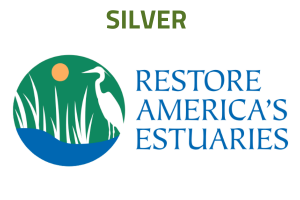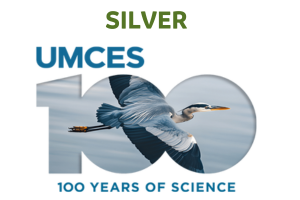- About
- Program
- Registration
- Experience
- Student & EC
- Hotel/Travel
- Sponsor/Exhibit
- Resources & More
CERF 2021 Call for Abstracts
The deadline to submit an abstract was Friday, 14 May 2021.
Thank you to all who submitted an abstract for CERF 2021! About 2021 AbstractsThe CERF 2021 Scientific Program Committee (SPC) invites you to submit an abstract for an oral or poster presentation for CERF 2021. CERF 2021 is going virtual! The virtual format for CERF 2021 will certainly be different, but it creates the opportunity to reach a more expansive group of scientists and students from around the world to address the science and management of coastal ecosystems and communities. The conference format will use technology that has worked well for other recent online conferences to emphasize virtual discussion during the conference event, including small-group engagement for poster presentations. “Going Virtual” also will allow our Federation’s conference to provide a wider array of activities to match the diverse needs of professionals at all stages in their career, supporting continuing education and development, and facilitating networking opportunities. Our 2021 conference marks the Federation’s 50th birthday, and our theme of "Celebrating Our Past, Charting Our Future" seeks to build on our societies’ foundation to contribute to a global conversation on coastal science during a challenging time for Earth and humanity, bringing together an energized group of thought leaders in science, management, and policy. Our conference team is working hard to design a scientific format that will bridge the virtual divide and allow you to access important information and networking opportunities. CERF is also pleased to welcome our colleagues from the Estuarine and Coastal Modeling (ECM) Conference community to the 2021 meeting. After several decades of meeting separately, we are excited to join forces. Please consider submitting an abstract to one of our special sessions that examines new findings within CERF’s traditional scientific, education, and management disciplines and encourages interaction among coastal and estuarine scientists and environmental management professionals. The SPC also encourages abstracts that promote intellectually stimulating discussions related to our themes, including:
View a List of CERF 2021 Special and General SessionsEducation SessionsThe goal of the education sessions is to highlight the role that many members play as both researchers and educators. Presenters can be professionals at a variety of levels from K-12 to university or informal science education. The conference limit of one first author oral or poster presentation per individual does not apply to the Education Sessions (listed below). If you intend to submit a second abstract in the Education category, please submit your science-focused abstract first. You will then receive a confirmation email that provides instructions on how to submit your education abstract, and the abstract fee for this second abstract will be waived. Eligible Education Sessions include:
Cultural Heritage and Coastal Humanities (CH/CH) SessionsThe conference limit of one first author oral or poster presentation per individual also does not apply to the CH/CH Session (and the second abstract fee will also be waived), entitled “Integrating Traditional Ecological and Local Knowledge with Coastal Ocean Science.” We encourage abstracts that highlight cultural stewardship and the human dimensions of risk and change associated with indigenous and other subsistence coastal communities' efforts to enhance strategies dealing with climate change impacts, mitigation, and adaptation. See the Cultural Heritage and Coastal Humanities web page for further details. Policies and Procedures for Submitting Abstracts to CERF 2021The Abstract Submission Portal opened on 3 March 2021. The abstract submission deadline was 14 May 2021 at 11:59 PM PT (04:59 GMT). All abstracts must be received by the closing date noted above. Any abstracts received after the deadline may not be eligible for inclusion in the conference program. Each submitter will be prompted to select a first choice and second choice session for their submission. Guidelines: Because the conference is virtual, the format for CERF science presentations has changed in order to maximize meaningful discussion and virtual engagement. See the scientific program formats below for more detail on each of the submission types: Oral sessions: Oral sessions will be organized as one or more 1.5 hour virtual session blocks with synchronous content. These live-content blocks will be divided between 1) one 30 min or 2- 15 min “Anchor” talks, 2) several 5-min “Summary” talks, and 3) a 30-min moderated discussion block that will feature the session speakers as panelists and facilitates discussions among all talks in the session block. Moderators will encourage and collate questions for all speakers and these questions will be used to kick off the discussion portion of the session block. All talks will be pre-recorded and delivered synchronously during the session. Presenters of 5-minute summary talks are also encouraged to record a traditional 15-min talk that will be available for asynchronous, on-demand viewing immediately after the session. Links to that talk can be given in the summary talk and will be viewable in the online program. Presenters are strongly encouraged to be present for synchronous sessions. However, if accessibility and logistical issues arise, presenters are not required to be present. Note that attendance ensures that you are present to answer questions and participate in the discussion period at the end of the session. Poster sessions: Poster submissions will be posted online and made available to conference attendees throughout the conference. Poster presenters may record and post an oral summary of their poster if they so choose. Conference attendees may interact with poster presenters during asynchronous discussion forums and/or during a scheduled Poster Roundtable, which will feature informal discussions in a live synchronous virtual ‘room’. The virtual synchronous Poster Roundtables will facilitate informal discussion and networking opportunities to emulate the engaging experience of traditional CERF poster sessions. Please review the following guidelines and tips before submitting your abstract. If the guidelines are not followed, your abstract will not be accepted.
Scientific Program FormatsSince we expect submission of more than 1,000 abstracts, we will be required to balance thematic guidelines, scheduling constraints, and other factors to create the best possible conference program. The SPC reserves the right to assign abstracts to either poster or oral sessions; please consider indicating that a Poster is an option during your abstract submittal process. Your understanding and cooperation are greatly appreciated.
One abstract submission per personPlease note that the Federation has a one presentation per person policy. This means that each participant is permitted to be the lead author or presenter on only one poster OR oral presentation. You may be co-author on other presentations. This policy was adopted to ensure that Federation conference sessions contain contributions from as many people as possible. The only exception to this limit is for second abstracts submitted to Education and CH/CH Sessions. Presenter Confirmation/Cancellation PolicyThe presenting author of accepted abstracts must confirm their participation by registering for the conference by 7 September 2021. For details, please see the Conference Presenter Cancellation policy. Thank you in advance for your submission.Questions/SupportTechnical questions or concerns about your submission should be directed to Confex at [email protected]. Questions or concerns related to the scientific program should be directed to CERF at [email protected]. Your inquiries will be sent to the proper person for response. Conference Co-ChairsMark Brush, Virginia Institute of Marine Science, William & Mary, [email protected] Lora Harris, University of Maryland Center for Environmental Science, Chesapeake Biological Laboratory, [email protected] Scientific Program Co-ChairsMartha Sutula, Department of Biogeochemistry, Southern California Coastal Water Research Project, [email protected] Jeremy Testa, University of Maryland Center for Environmental Science, Chesapeake Biological Laboratory, [email protected] Benjamin Walther, Department of Life Sciences, Texas A&M University - Corpus Christi, [email protected] |


